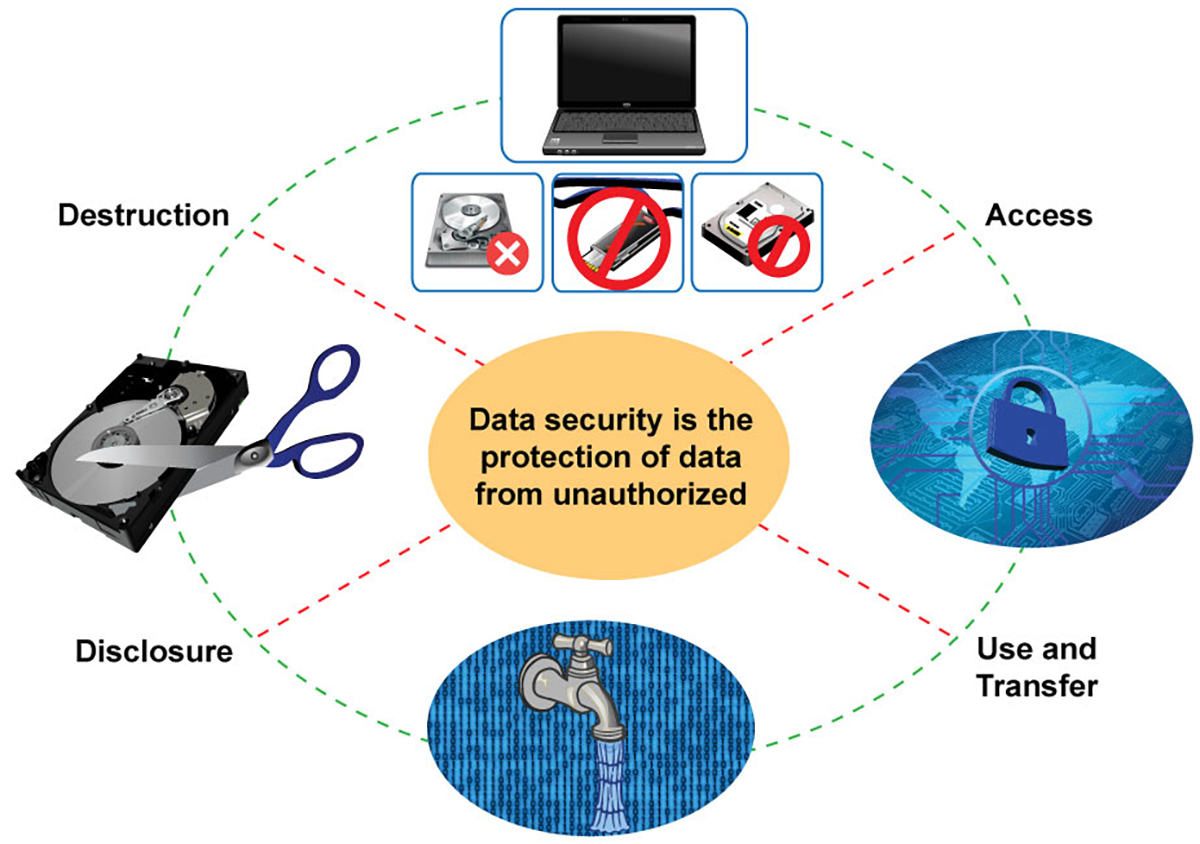Why Data Destruction is an Essential Element of Comprehensive Cyber Security
Why Data Destruction is an Essential Element of Comprehensive Cyber Security
Blog Article
The Essential Nature of Information Devastation in Upholding Computer System Safety And Security Services and Protecting Versus Unauthorized Accessibility
In an age where information breaches and identity burglary are significantly prevalent, the importance of reliable data destruction can not be overstated. Various approaches, from data cleaning to physical destruction, serve as critical safeguards against unauthorized accessibility.
Relevance of Data Devastation
In a progressively digital world, the value of data damage can not be overemphasized. As companies amass vast quantities of sensitive info, the potential repercussions of falling short to correctly manage and dispose of that information come to be increasingly extreme. Information breaches, identity theft, and business reconnaissance present substantial risks, emphasizing the necessity of reliable data devastation methods.

Furthermore, as innovation evolves, so too do the approaches by which destructive actors look for to make use of delicate information. Organizations needs to stay alert and positive in their information damage approaches to protect against these advancing risks. By focusing on information damage, firms not just secure their properties however additionally foster depend on amongst customers and stakeholders, demonstrating a commitment to accountable information administration and protection methods.
Approaches of Effective Information Devastation
To ensure the irreversible and total damage of delicate data, organizations can utilize a range of efficient techniques tailored to their details demands. Among one of the most usual methods is information cleaning, which includes utilizing specialized software application to overwrite existing information multiple times, making recovery basically difficult. This is especially helpful for solid-state drives and difficult drives, where standard removal methods are insufficient.
Another reliable method is degaussing, which makes use of solid magnetic fields to disrupt the magnetic domains on storage media, rendering the information irretrievable. This technique is specifically suited for magnetic storage tools, such as disk drive and hard drives.
Physical damage is additionally a practical alternative, entailing the shredding, squashing, or incineration of storage tools. This technique assurances that data can not be recovered, making it ideal for organizations taking care of extremely sensitive details.

Compliance With Data Defense Laws
Organizations need to not only concentrate on effective data devastation methods yet likewise make certain conformity with information protection regulations that govern just how delicate info is handled and gotten rid of. Sticking to these laws is important for maintaining and protecting personal information consumer trust fund. Laws such as the General Data Defense Regulation (GDPR) in the European Union and the Medical Insurance Portability and Liability Act (HIPAA) in the United States impose rigorous standards on data monitoring, which include requirements for the safe and secure disposal of sensitive info.
To achieve compliance, organizations must apply thorough data destruction policies that straighten with these legal frameworks. This includes determining information that calls for destruction, establishing protocols for safe and secure methodsâEUR" such as shredding physical media use this link or making use of software application that satisfies market requirements for data wipingâEUR" and keeping comprehensive documents of destruction tasks. Routine audits should be performed to guarantee adherence to these policies and to identify any type of potential areas for renovation.
Failure to abide by information security laws can cause significant lawful ramifications, including substantial fines and damages to an organization's reputation. Therefore, integrating conformity into information destruction methods is not only a lawful obligation however additionally a vital component of a durable information security technique.
Consequences of Poor Information Handling
Poor data handling can lead find here to serious consequences that expand past instant functional obstacles. Organizations might encounter substantial monetary losses due to information breaches, which commonly result in costly removal efforts, legal charges, and regulatory fines. These financial ramifications can prevent and strain resources development, inevitably influencing an organization's lower line.
Additionally, bad information handling can drastically harm a company's online reputation. Partners, customers, and stakeholders might lose trust in an entity that falls short to secure sensitive details, resulting in lowered customer commitment and possible loss of business possibilities. This erosion of trust fund can take years to restore, if it can be restored whatsoever.
Furthermore, organizations can deal with lawful implications emerging from non-compliance with information protection guidelines. Such offenses might result in penalties and examinations, intensifying the financial concern and further staining the organization's picture.
In the world of cybersecurity, insufficient information management methods can create susceptabilities that make systems more at risk to unapproved accessibility and browse around this web-site cyberattacks. Ultimately, these consequences highlight the vital value of applying durable data taking care of procedures to protect sensitive details and keep business honesty.
Best Practices for Secure Information Disposal


To start with, information should be classified according to its level of sensitivity. Sensitive details requires a lot more extensive disposal techniques, such as shredding physical records and utilizing innovative software application for electronic data wiping. Utilizing certified data damage solutions makes sure compliance with market laws and requirements.
Secondly, organizations need to execute a data disposal plan that mandates normal audits. This policy should detail the treatments for information retention and damage, ensuring that out-of-date information is disposed of quickly and safely. Training staff members on these methods is vital to fostering a society of safety understanding.
Lastly, preserving thorough documents of disposed data boosts responsibility and provides a clear audit trail. This documents needs to consist of the type of data destroyed, the approach made use of, and the date of disposal.
Verdict
Adopting robust methods such as data wiping, degaussing, and physical damage, together with compliance with guidelines like GDPR and HIPAA, is important for securing delicate details. Overlooking proper data disposal practices can lead to extreme repercussions, including data violations and legal effects.
In a period where data violations and identity burglary are significantly widespread, the relevance of reliable information devastation can not be overstated. data destruction. Data breaches, identification theft, and business reconnaissance posture considerable dangers, underscoring the requirement of effective data devastation methods
Compliance with laws such as GDPR and HIPAA mandates that organizations execute rigorous data security measures, consisting of the protected destruction of data at the end of its lifecycle.
By focusing on information devastation, companies not only shield their possessions but likewise foster count on amongst customers and stakeholders, showing a commitment to responsible data administration and protection techniques.
Organizations have to not only focus on efficient information damage approaches however also ensure compliance with data security regulations that regulate exactly how sensitive details is handled and disposed of.
Report this page